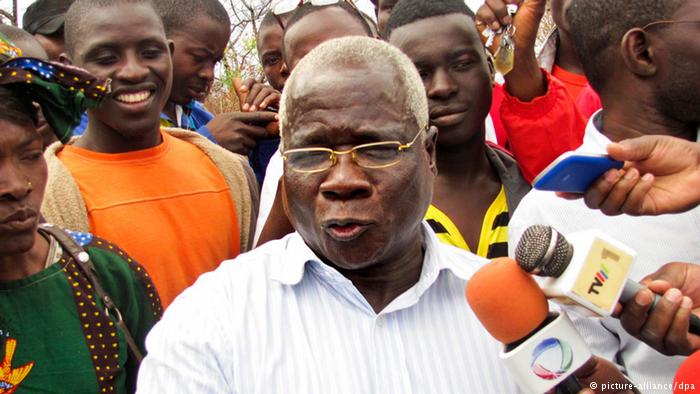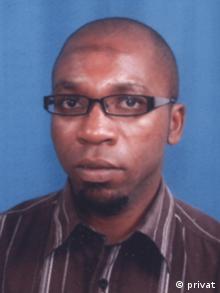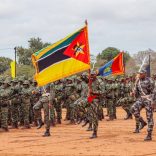Mozambique: Chapo meets with ALBIMOZ representative
Renamo after Dhlakama: Cohesion or splits?

DW / Afonso Dhlakama, former leader of Renamo, the largest opposition party in Mozambique
Renamo without Dhlakama is an opportunity for the development of Renamo as an institution, argues analyst Calton Cadeado. And according to analyst Eduardo Sitói, the party will survive without its leader, and there will be a peaceful transition.
Afonso Dhlakama and Renamo were practically one. He embodied the largest opposition party and somehow centralised all important decision-making. Among other factors, his enormous popularity, his simple way of doing politics and the charisma contributed to this. In short, he was the leader.
Today Renamo sees itself without its guide, and the question this poses is: what is the future of Renamo without Afonso Dhlakama?
We invite political analyst Calton Cadeado of the ISRI-Istituto Superior de Relações Internacionais to peer into the future.
“I see two scenarios, a great one and a terrible one, which is the main one. Afonso Dhlakama is an opportunity for the development of the Renamo institution, but can also be a threat to the survival of Renamo itself as an institution,” he said.
Cadeado argues that “while Afonso Dhlakama was alive and leading the party, what we found was that he invested more in the person than in Renamo as an institution. But optimism could be thwarted by internal power struggles, which will determine the direction of the party”.

First test under fire completed
There was a fierce struggle for power within Renamo shortly after Dhlakama’s death, the signs of which have not yet become public. This was the first test under fire of the largest opposition party without its leader.
For political scientist Eduardo Sitói, the way Renamo has managed the transition so far provides a good omen. He believes in maintaining cohesion. “Yes, if we take into account the first indications about what happens after [the death] of the leader, it is a peaceful transition. I believe the first indications are that Renamo will survive the death of its leader”.
Sitói recognises that “it will not be easy, but they will succeed. It will not be easy because their [new] leader is essentially political and military and therefore, the next one must have the capacity to lead both the military and also the civilian part”.
Is there a risk of schism between the political and military wings?
Renamo’s greatest asset lies in its strength of arms and its experienced military staff, also its biggest differential compared to the rest of the opposition. So its survival still depends on the maintenance of the military wing, at least until it reaches the consensus it wants with the Frelimo government. But there is also a more intellectual and urban Renamo with ambitions of its own.

Is Renamo destined to an eternal submission to the military wing or is there a risk of divisions in the medium term?
“Within the ‘terrible’ scenario, tere is this possibility. We have had this situation before, like [when] Manuel de Araújo and Daviz Simango [left], who created the Mozambique Democratic Movement (MDM). Renamo has to be strong in order for people to remain in power within Renamo and there is no such split, if this happened now it would be terrible, because it is a moment of Renamo’s fragility and that is part of the aspects that I am putting as a threat to the survival of the party,” Cadeado says.
Eduardo Sitói has a different position. For the political scientist, the current interim Renamo president, Ossufo Momade, who combines the values of the two wings, is a factor that can guarantee cohesion.
“At this moment the indication is that he is a figure who can most probably bring the two wings together,” Sitói believes.












Leave a Reply
Be the First to Comment!
You must be logged in to post a comment.
You must be logged in to post a comment.